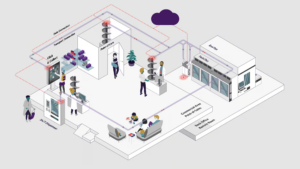
Generators are the essential equipment for providing emergency back-up power to businesses and residences. There are many different types of generators available in the market, but it is necessary to know about them so as to choose the right generator for your requirements.
- Portable Generator: This is considered as the most convenient option because it can be moved from one place to another. However, you need to know that despite being portable, it will require a large amount of space within your premises. Its various components and moving parts might need more maintenance as compared to other types of generators. On the positive side, this generator gives you maximum flexibility because it can be used anywhere with ease.
- Standby Generator: This is one of the most common options chosen by people because of its unique features like automatic startup and smooth working. They provide back-up power for houses and businesses during a crisis or emergency situation. You can connect these generators to your main power source for continuous running or keep them disconnected for running only when there is an emergency situation arises in your area. If you want a reliable generator that does not need much maintenance then it is recommended for you to choose standby generator.
- Mobile Generator: Mobile generators have been designed to be easily transportable using trucks or trailers. They have small gasoline engines, and they use spark plugs to ignite the fuel and start the engine. They usually have automatic chokes, so there is no need to manually choke them when starting them up. The good thing about mobile generators is that their power output can be increased by connecting additional units together, making them more economical than others.
There are four categories of generators available in the market based on fuel used. These include:
1) Gasoline: Gasoline generators come with various sizes, ranging from 10 kVA to 500 kVA. This is a common generator used in homes, offices and even hospitals.
2) Diesel: Diesel powered generators are also available in various capacities ranging from 3 kVA to 700 kVA. These generators are commonly used in industries and factories.
3) Biogas: Biogas, also known as Bio gas or methane gas, is generated through the process of anaerobic digestion of organic matter by micro organisms like bacteria. Though biogas looks similar to propane, it can be stored for longer periods and has lesser chances of getting contaminated with liquid fuels.
4) Natural Gas: Natural gas generators produce electricity by burning natural gas in a generator set which converts the pressure energy into electrical energy.






